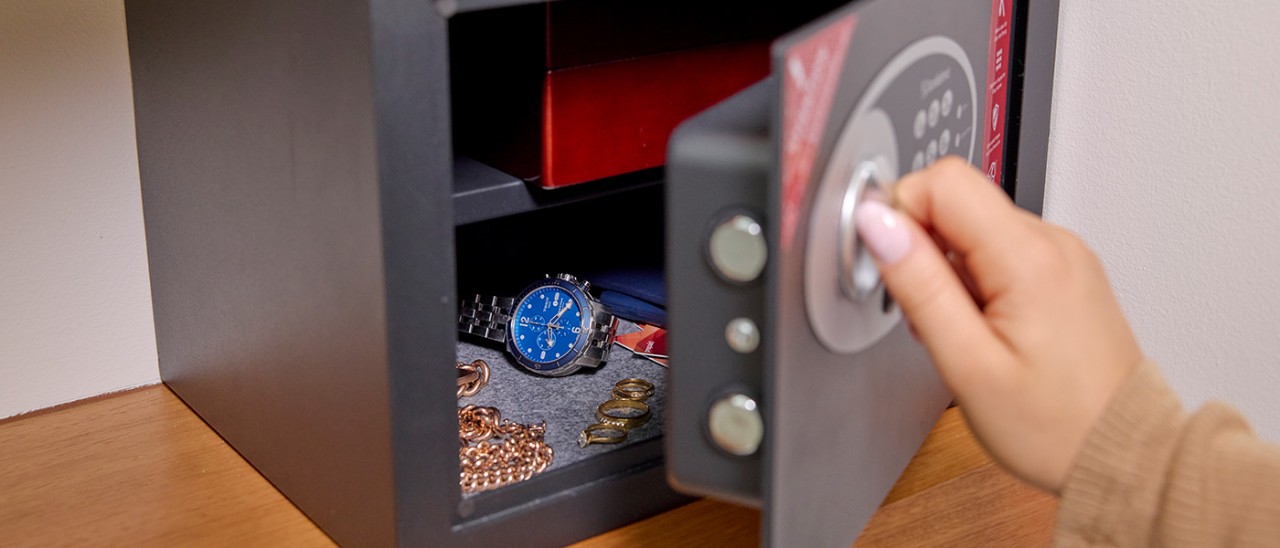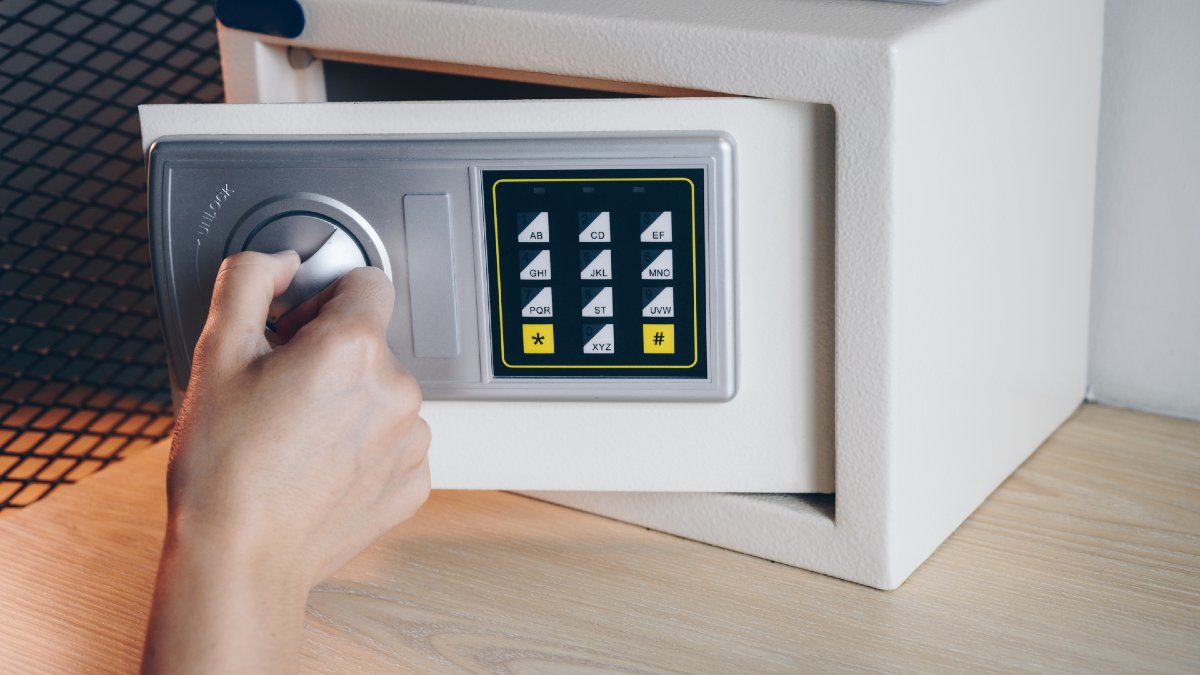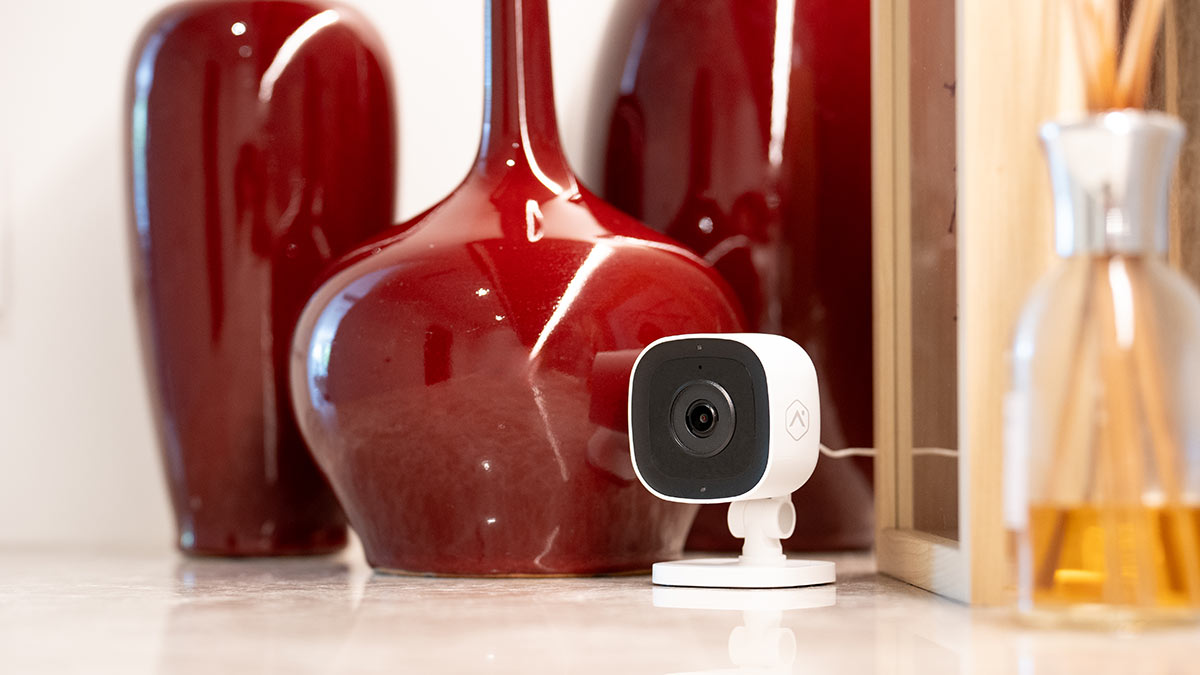Learn how jewellery insurance works, what it covers and how to keep your jewellery safe at home and while travelling.
The ultimate guide to the best home safes for valuables

Home safes are a great way to protect your valuables and important documents from theft. Here’s what you need to know about home safes, and how to buy the best home safe.
Burglaries are increasing across Victoria, prompting many households to reassess how they protect their valuable possessions. According to the Crime Statistics Agency (CSA), there were 30,545 residential burglaries reported in Victoria for the year ending 30 June 2025 - an increase of almost 14 per cent compared to the previous year.
Homeowners can take several practical steps to safeguard their belongings, such as upgrading security systems, reviewing home insurance policies, and installing safes to secure valuables.
Read on to learn what features to consider when buying a safe, as well as general advice on how to install a safe so that's it's secure.
What you need to know about home safes
Why you should own a safe
Most people own a home safe to protect their valuables and important documents from theft, fire and flood.
Particularly valuable items are often stored for safety, such as expensive jewellery, currency, loose gemstones, and spare keys. Important identification or financial documents can also be stored in home safes. Wills, birth certificates, passports, title deeds, health documents and insurance policies are all examples of crucial documents. You may have digital copies, but it’s important to protect the originals. You may also want to store USBs or portable hard drives with important information in the safe.
If you own any firearms, Victorian law requires you to store them in a purpose-built steel storage receptacle with a thickness of at least 1.6mm. It must be bolted to the structure of the premises if the receptacle weighs less than 150kg when empty and locked with a lock of sturdy construction. A home safe can fit all these requirements. You can even place your valuables in the same safe – except for ammunition, which must be stored in a separate locked container.
More: Insurance for jewellery: How to cover engagement and wedding rings, watches and heirlooms

Small, portable home safes can be removed by thieves unless bolted down. Image: Getty
How to buy a home safe: what to look out for
There are a few features to look for when buying a safe, including a solid steel construction, sturdy locks, and a high cash rating. Consider whether you want your safe to be fire-resistant or water-resistant too.
Lock
Home safes can use several types of locks. These include:
- Key locks – this lock is like a door lock, with a key required to open. Of course, skilled thieves could pick the lock, and you would have to be careful not to lose the key.
- Dial locks – a dial or combination lock is a reliable, if old-school, mechanical lock that you twist to input the correct numbers. You will have the remember the code, which usually cannot be changed.
- Electronic locks – digital or electronic locks have a keypad and display screen. You can set your own combination and change it as necessary. Some models even time-out after too many failed attempts to enter the code, for extra security. But like any electronics, a digital lock will fail if the battery dies, or the power is cut.
Ideally, your safe will use a combination of these locks.
Construction
It’s important to ensure that your home safe can’t easily be opened by a burglar with a screwdriver, hammer or crowbar. Having a great lock is of little use when the safe’s walls are flimsy enough to break through, or if its locking bolts are weak enough to snap.
First, make sure your safe is large enough to store all the documents and valuables that you want inside. Next, ensure that your home safe has thick steel walls and doors. Ideally, it should also be too heavy to be easily carried away and broken into at another location. A mid-range safe commonly weighs between 40 and 80 kilograms, while a high-security safe could weigh over 200 kilograms.
Cash rating (theft rating)
Home safes are often sold with a ‘cash rating’, which can be interpreted as the anti-theft quality of the safe: the higher the rating, the more secure the safe.
Cash ratings are usually expressed in a dollar value, and typically range from $2,000 up to $50,000. Cheap safes may not have a cash rating at all.
Many cash ratings are not independently verified, so use them as a guide rather than a guarantee.
Fire rating
A home safe’s fire rating tells you how long it should protect its contents when subjected to heat and flame. A minimum fire rating is for 30 minutes, but aim for at least a 60-minute rating to give emergency services more time to completely put out the fire.
Fire ratings should also be treated as a guide rather than a guarantee, since home safe manufacturers may not independently verify their tests.
Keep in mind that highly rated anti-theft safes may have a poor fire rating, or no fire rating at all. That’s because thicker steel walls absorb more heat.
Flood rating
Many safes claim to be water-resistant, or even waterproof. At the least, a fire-rated home safe should be resistant to water ingress, to resist fire hoses or in-ceiling sprinklers.
A properly waterproof safe should be able to resist flooding.
TDR rating
Torch and drill-resistant (TDR) safes provide very high protection against theft. They can resist power drills, grinders, oxy-acetylene torches, and sometimes even explosives. Make sure to check whether a safe’s TDR rating relates to its door or the entire safe.
A TDR rating is not required for the average home safe owner. TDR safes are very expensive, and usually only necessary for people with extremely valuable goods.

In addition to a safe to protect your valuables, a security camera can help deter burglars.
Average cost of a home safe
The cost of a home safe is related to its weight, locking mechanism, and theft and cash ratings. Some safes also have a waterproof rating.
Basic safes cost between $50 and $200, while a safe with good theft and fire ratings that’s capable of storing a moderate amount of your valuables costs more than $700. Professional, high-end safes with high TDR ratings start at about $1,500.
Getting your safe professionally installed will likely cost a few hundred dollars in addition.
Where to install a home safe
Your home safe should be installed out of sight so that it’s harder for would-be burglars to find. Ideal locations include in a wardrobe, under the stairs, or in the basement. Other considerations include:
- Choose a corner: this will make it harder to lever out.
- Concrete or brick are the best materials to anchor a safe to.
- Avoid rooms with humidity or dampness problems (mould is a tell-tale sign), which can rust the safe over time.
How to install a home safe
If you decide to install a small safe yourself, make sure it comes with an installation kit and instruction manual. If you're unsure, professional safe installation is often more secure and precise, especially for heavier or higher security safes. Make sure you choose a company that has licensed locksmiths that specialise in the safe installations.
You may have location in mind, but a professional installer can advise on security, accessibility and fire resistance. They will ensure the floor or wall can support the weight and check the joists or concrete thickness, and take note of any wiring and plumbing to avoid.
Once the safe is bolted to the floor or secured to the wall, they can check the anchor strength, ensure the locking mechanism is working, and provide advice on maintenance.
The information provided is general advice only. Before making any decisions please consider your own circumstances and the Product Disclosure Statement and Target Market Determinations. For copies, visit racv.com.au. As distributor, RACV Insurance Services Pty Ltd AFS Licence No. 230039 receives commission for each policy sold or renewed. Product(s) issued by Insurance Manufacturers of Australia Pty Ltd ABN 93 004 208 084 AFS Licence No. 227678.


